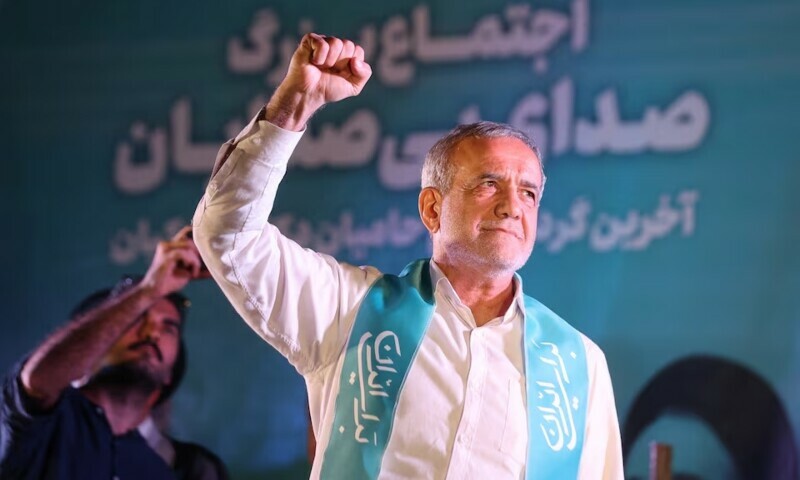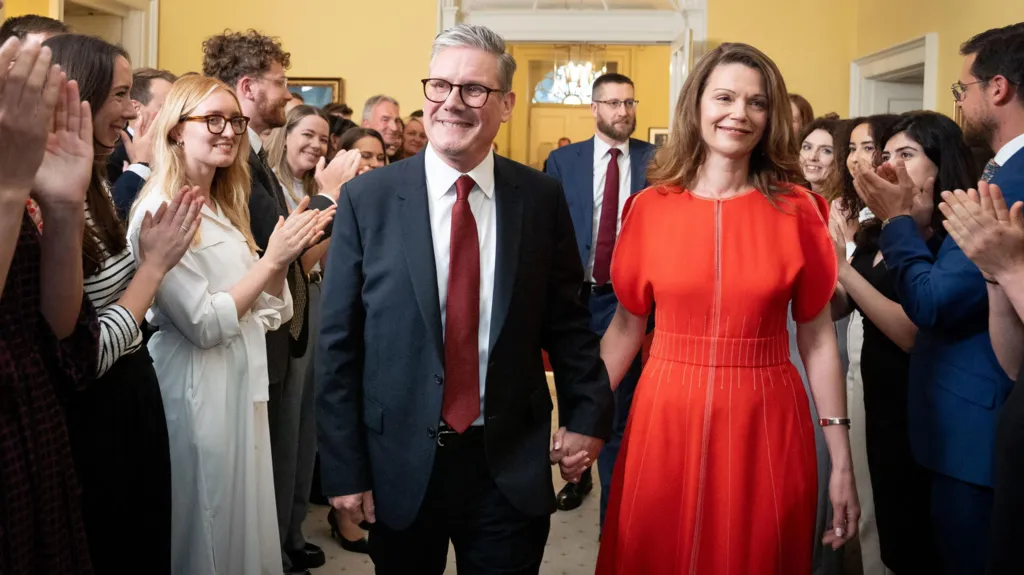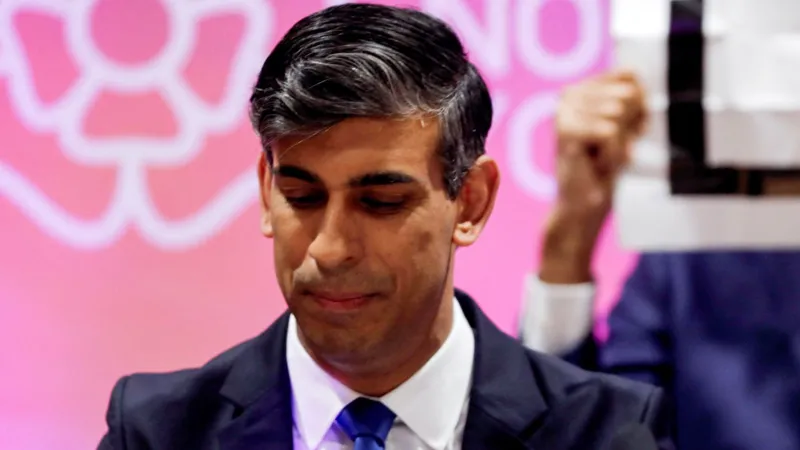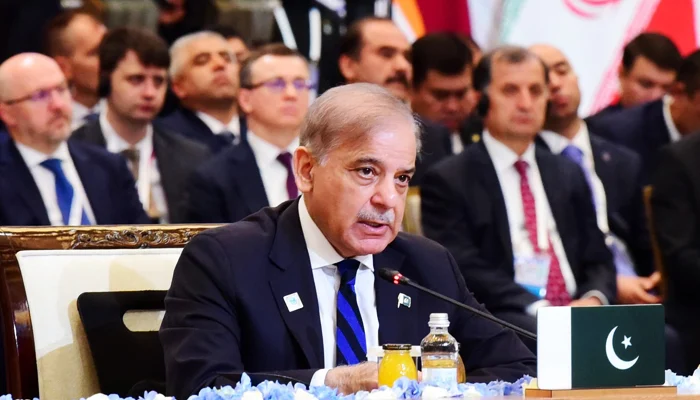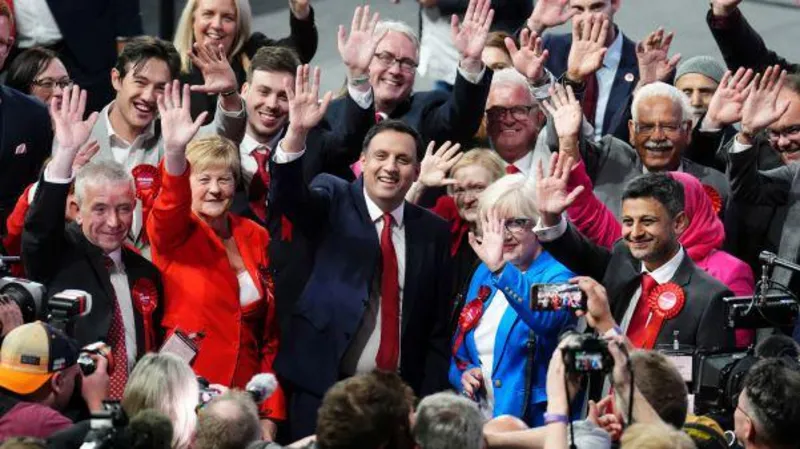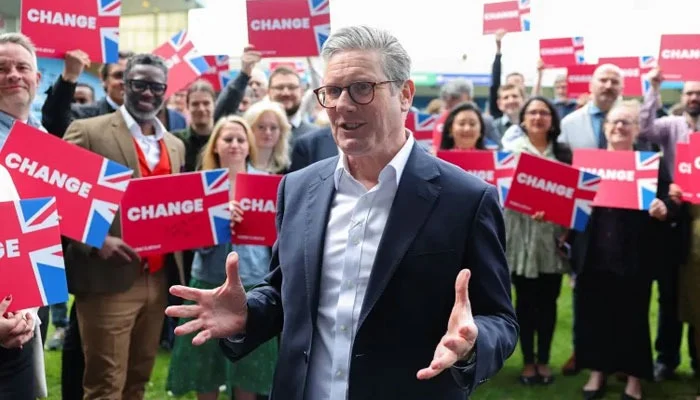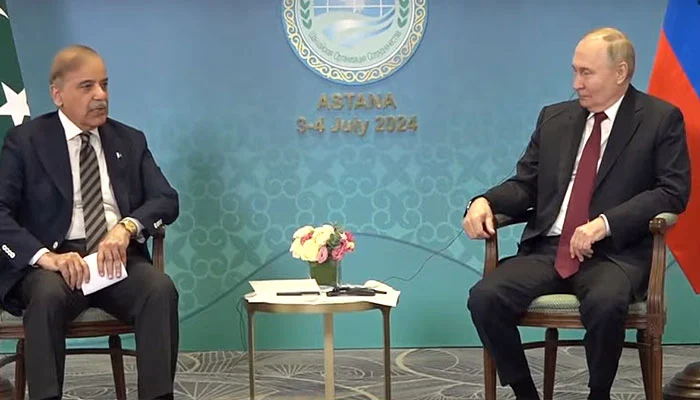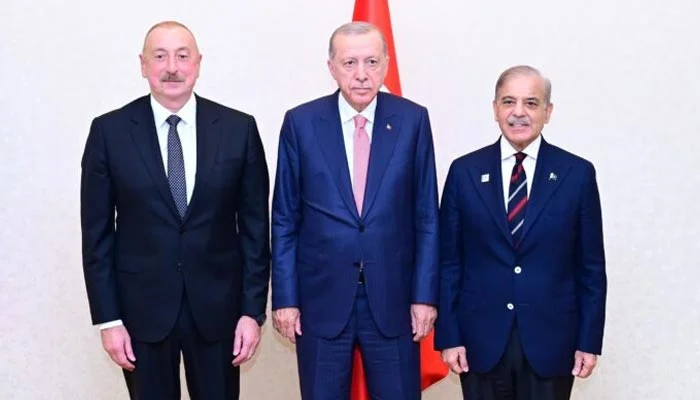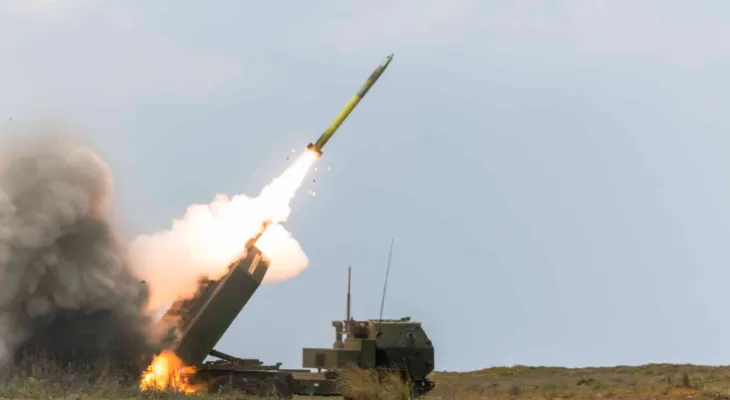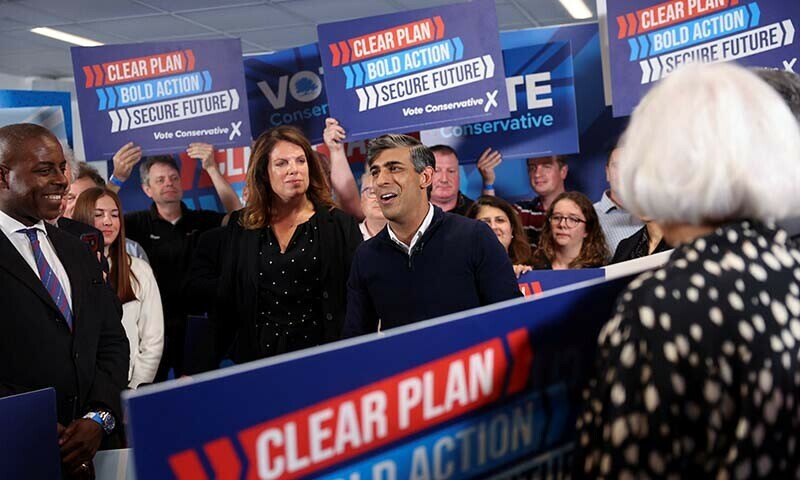“By gaining majority of the votes cast on Friday, Pezeshkian has become Iran’s next president,” it said.
The participation was around 50 per cent in a tight race between Pezeshkian, the sole moderate in the original field of four candidates, and hardline former nuclear negotiator Saeed Jalili, a staunch advocate of deepening ties with Russia and China.
The run-off on Friday followed a June 28 ballot with a historically low turnout, when over 60pc of Iranian voters abstained from the snap election for a successor to Ebrahim Raisi, following his death in a helicopter crash.
Videos on social media showed supporters of Pezeshkian dancing in streets in many cities and towns across the country and motorists honking car horns to cheer his victory.
People in the northwestern city of Urmia, Pezeshkian’s hometown, were handing sweets out on the streets, witnesses said.
In a post on X, President Asif Ali Zardari congratulated the newly elected Iranian president. “Pakistan and Iran enjoy fraternal ties & I hope that under your leadership our relations will grow further stronger,” he said.
“Looking forward to work together for the peace and prosperity of the region,” he added.
Prime Minister Shehbaz Sharif also felicitated the Pezeshkian. “As neighbouring countries, Pakistan & Iran enjoy a close & historic relationship. We must ensure a bright future for our two peoples through mutually beneficial cooperation,” he said.
While the election is expected to have little impact on the Islamic Republic’s policies, the president will be closely involved in selecting the successor to Ayatollah Ali Khamenei, Iran’s 85-year-old Supreme Leader, who calls all the shots on top matters of state.
Voter turnout has plunged over the past four years, which critics say underlines that support for clerical rule has eroded at a time of growing public discontent over economic hardship and curbs on political and social freedoms.
Only 48pc of voters participated in the 2021 election that brought Raisi to power, and turnout was 41pc in a parliamentary election in March.
The election coincides with escalating Middle East tensions due to the war between Israel and Iranian allies Hamas in Gaza and Hezbollah in Lebanon, as well as increased Western pressure on Iran over its fast-advancing uranium enrichment programme.
The next president is not expected to produce any major policy shift on the nuclear programme or change in support for militia groups across the Middle East, but he runs the government day-to-day and can influence the tone of Iran’s foreign and domestic policy.
A triumph by Pezeshkian might promote a pragmatic foreign policy, ease tensions over now-stalled negotiations with major powers to revive a 2015 nuclear deal, and improve prospects for social liberalisation and political pluralism, analysts said.
However, many voters are sceptical about Pezeshkian’s ability to fulfil his campaign promises as the former health minister has publicly stated that he had no intention of confronting Iran’s power elite of clerics and security hawks.
“I did not vote last week but today I voted for Pezeshkian. I know Pezeshkian will be a lame duck president but still he is better than a hardliner,” said Afarin, 37, owner of a beauty salon in the central city of Isfahan.
Many Iranians have painful memories of the handling of nationwide unrest sparked by the death in custody of young Iranian-Kurdish woman Mahsa Amini in 2022, which was quelled by a violent state crackdown involving mass detentions and even executions.
“I will not vote. This is a big NO to the Islamic Republic because of Mahsa (Amini). I want a free country, I want a free life,” said university student Sepideh, 19, in Tehran.
The hashtag #ElectionCircus has been widely posted on social media platform X since last week, with some activists at home and abroad calling for an election boycott, arguing that a high turnout would legitimise the Islamic Republic.
Both candidates have vowed to revive the flagging economy, which has been beset by mismanagement, state corruption and sanctions reimposed since 2018 after the United States under then-President Donald Trump ditched the nuclear deal.
“I will vote for Jalili. He believes in Islamic values. He has promised to end our economic hardships,” retired employee Mahmoud Hamidzadegan, 64, said in the northern city of Sari.


